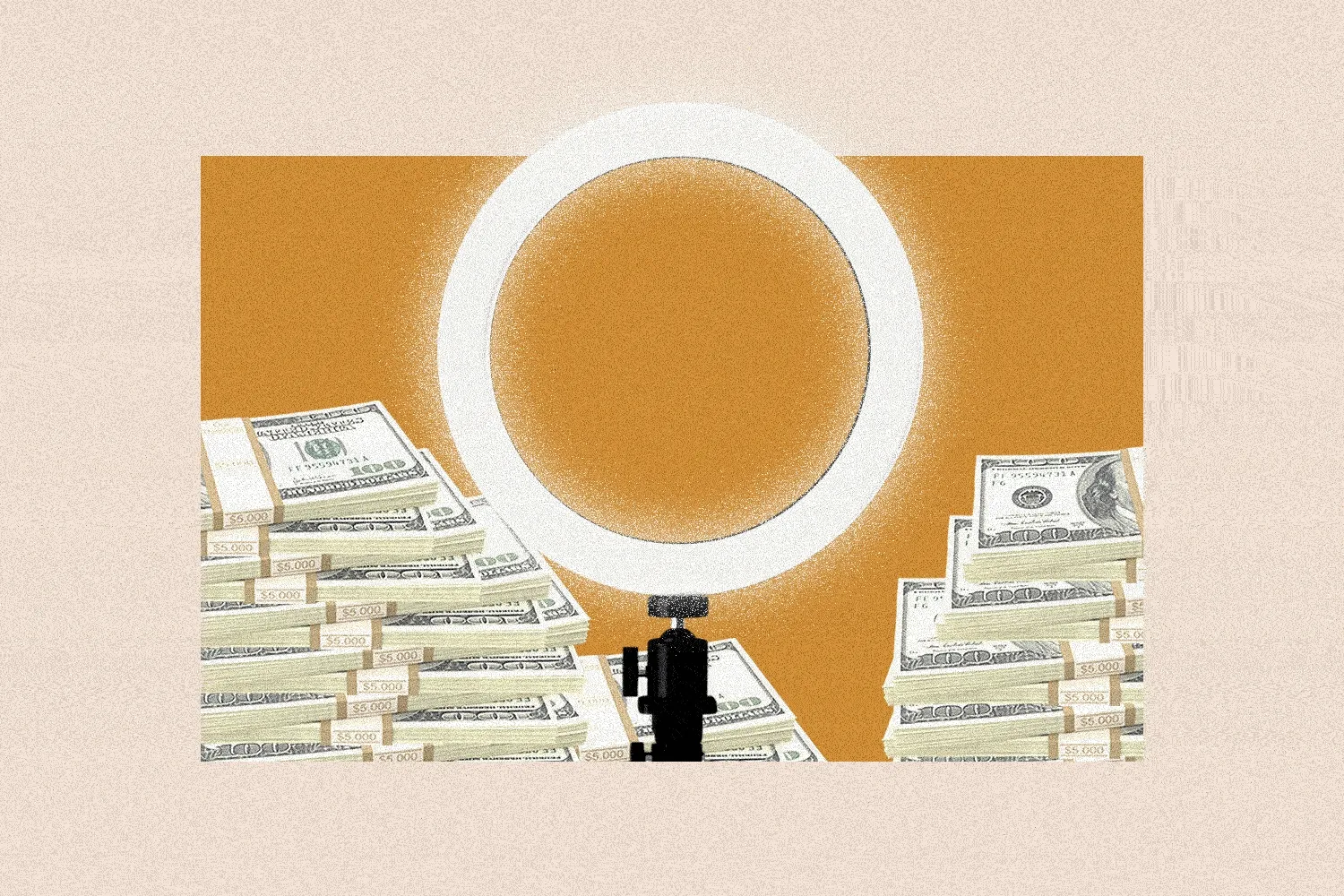When Nick Chen, co-founder and CEO of Hype, a marketing and payments platform for creators, raised $5.5 million in Seed Plus funding in 2020, it took about a month. That probably wouldn’t happen today—for creator economy companies looking to raise funds, “the vibe is really bad,” he told Marketing Brew.
Even if many kids want to become influencers instead of athletes or astronauts, the cottage industry catering to the creator economy isn’t doing so hot. Those are the businesses that largely view creators as their customers, like link-in-bio companies or platforms that can help with their finances.
Despite everyone and their cousin ordering a ring light, as of June, at least seven creator economy startups had shut down and 11 had been acquired since the start of last year, according to The Information, which described it as a “reckoning” for these businesses. It also reported that projected fundraising for creator startups was down more than 90% in Q2 compared to the same time in 2021.
While the creator economy itself is still growing—one recent report expects it to grow 17% this year to $34 billion—venture capital in the sector has cooled since the early pandemic days, when people were spending more time online and companies like Meta and TikTok were thriving. But that’s not to say investors are writing off the space—some are just going directly to creators instead.
Slow your reel
Last year, staff cuts came for Patreon, Substack, and Cameo. This year, link-in-bio company Linktree laid off more than a quarter of its staff. Grin, an influencer marketing platform, and JellySmack, a startup that repackages videos for creators and distributes them on other platforms, have had layoffs this year.
“Judgment day has arrived for many of these companies,” Sasha Kaletsky, co-founder of Creator Ventures, which has invested in newsletter platform Beehiiv and generative AI startup Eleven Labs, said. “It’s become clearer that only a select set of tools for creators can actually create value.”
FWIW, it’s not like the broader VC market is doing much better. Earlier this year, overall venture funding fell to its lowest level since 2020, according to CB Insights.
Influencer marketing budgets are still strong, however, growing at a double-digit pace that could surpass $7 billion by 2024, according to Insider Intelligence. Still, just because the creator economy itself is growing doesn’t necessarily mean influencers want or need many of the offerings these startups have historically offered.
Brian Harwitt is a partner at CoVenture, an investment firm that has invested in creator economy companies like Spotter, a company that pays YouTube creators upfront in exchange for licensing their back catalogs, which provide future advertising revenue.
Get marketing news you'll actually want to read
Marketing Brew informs marketing pros of the latest on brand strategy, social media, and ad tech via our weekday newsletter, virtual events, marketing conferences, and digital guides.
As he tells it, many saw the hype and jumped in. That led to “a lot of investors who are transient or new to the space, solving problems that might not have existed, or putting together solutions that were unprofitable to service at scale,” he said. Later, he added,“we’re in the third inning. The first two innings were insane.”
For example, last year, Insider counted at least 30 companies offering link-in-bio tech. Merchandising platform Spring, formerly known as Teespring, pivoted to serving creators in 2021. Again, layoffs followed, then the company was acquired.
Creator-oriented B2B services aren’t attractive to investors right now, Kaletsky said, explaining that creators buy stuff “that they enjoy, and that’s about the content. It’s not about making their business more efficient,” he said. “They don’t have a CTO or CFO pressuring them to optimize their workflows.” After all, they’re only human.
Harwitt agreed, emphasizing that he’s looking for tools and services that offer “predictable monetization for creators” and can scale “beyond just a services platform.”
Some startups may have struggled to gain traction because they struggled to figure out a sustainable target audience. This month, Hunter Walk, partner at seed-stage VC fund Homebrew, wrote that “too many creator economy startups targeted overly broadly (‘influencers’) or overly narrow (‘sports coaches want to create video’),” making it difficult for them to find their place in the market and scale.
Straight to the source
While a bit unusual for venture capitalists, who traditionally prioritize scale above all else, a few firms are going DTC—direct to creator. Earlier this year, The Chernin Group backed auto influencer Doug DeMuro’s car auction site with $37 million.
Last year, Slow Ventures invested $1.7 million in YouTuber Marina Mogilko in exchange for 5% of her creator earnings for the next 30 years. In 2021, YouTubers Rhett & Link started a $5 million equity fund to help creators grow their businesses.
“For certain creators who want to build an empire or franchise in and around their name and their personal brand, what if we could give them a little bit of startup capital?” Megan Lightcap, a principal at Slow Ventures, said.
According to Lightcap, funds often go toward a specific product or project that they’re working on; for instance, she said it recently backed a creator who’s working on a software platform.
Since the firm began investing in creators more than a year ago, it’s signed six to seven creator deals.
9/27/23 Update: This story has been updated to clarify the type of funding Hype raised in 2020.
